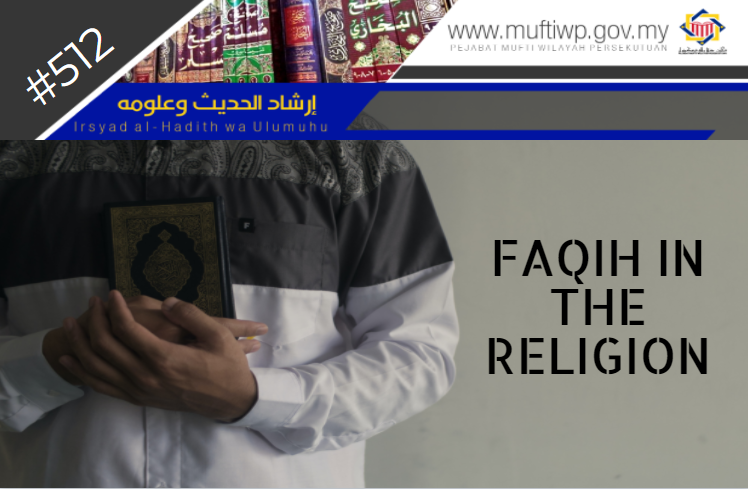Question:
What is the status of the following hadith?
It is said that the Prophet PBUH said:
إذا أرادَ اللَّهُ بِعبدٍ خيرًا فقَّهَه في الدِّينِ، وزَهَّدَه في الدُّنيا ، وبصَّرَه عيوبَهُ
“If Allah wants goodness for a servant, then He will give him understanding in the religion, make him zuhud from the dunya and show him his weaknesses.”
Brief Answer: The above hadith or narration by Imam al-Baihaqi is a mursal narration. The status of such narration is dhaif because its sanad is disconnected at the tabaqah (level) of the Companions. However, its meaning is sahih based on other sahih hadiths.
Explanation:
Alhamdulillah, praise and thanks to Allah for the countless blessings He has blessed us all with. Blessings and salutations to the Prophet Muhammad PBUH, his wives, his family, companions and all those that follow his teachings to the day of judgement.
Based on the above question, this hadith is indeed narrated by Imam al-Baihaqi in his book Syu’ab al-Iman, in which:
- It is narrated by Muhammad bin Ka’ab al-Qurazi said that the Prophet PBUH said:
إذا أرادَ اللَّهُ بِعبدٍ خيرًا فقَّهَه في الدِّينِ، وزَهَّدَه في الدُّنيا ، وبصَّرَه عيوبَهُ
“If Allah wants goodness for a servant, then He will give him understanding in the religion, make him zuhud from the dunya and show him his weaknesses.”
Narrated by Al-Baihaqi in Sunan Al-Kubra no 10053
Whereas pertaining to the status of the hadith, Imam al-Suyuthi evaluated this hadith as dhaif because it is a hadith or narration which is mursal. (Refer Jalaluddin Al-Suyuti, Abdurrahman Bin Kamaluddin Abu Bakar bin Muhammad Sabiquddin, Al-Jami’ Al-Saghir Min Hadith Al-Basyir Wa Al-Nazir, 1/28). Besides, Imam al-Ajlouni also evaluated this narration from al-Baihaqi as mursal. (Refer Al-Ajlouni, Ismail Bin Muhammad, Al-Kasyfu Al-Khafa Wa Muzil Al-Albas ‘Amma Isytahara ‘Ala Alsinah Al-Nas 2/285). Besides, Syeikh al-Albani also evaluated this narration as mursal. (Refer Al-Albani, Muhammad Nasiruddin, Dhaif Al-Jami’ Al-Saghir 1/48).
Imam al-Zahabi said Muhammad bin Ka’ab al-Qurazhi frequently made his narration mursal by narrating from a person which he had never met. (Refer Al-Zahabi, Muhammad Bin Ahmad Bin Uthman, Siyar ‘Alam Al-Nubala, 5/66). This is because, the definition of mursal hadith is a hadith which sanad is not stated (disconnected) in the level of the Companions or a narration from the tabi’in (either greater or lesser tabi’in) directly to the Prophet PBUH.
Looking to the above opinion, this narration of al-Baihaqi is dhaif because it is a mursal narration. This is because, mursal hadith is dhaif due to disconnection in the sanad and this is also the opinion of a hadith scholar like Imam Muslim.
However, the meaning of the above hadith is true because there are many other hadiths which portray as such regarding the understanding in the religion, zuhud and frequent contemplation. Among them:
- It is narrated from Sahl bin Sa’ad al-Sa’idi RA, he said: I heard Mu'awiya b. Abu Sufyan saying in an address that he had heard the Messenger of Allah (ﷺ) said:
مَنْ يُرِدِ اللَّهُ بِهِ خَيْرًا يُفَقِّهْهُ فِي الدِّينِ
He to whom Allah intends to do good, He gives him insight into religion
Sahih Muslim (1037)
- It is narrated by Abi Ya’la Syaddad bin Aus RA that the Prophet PBUH said:
الْكَيِّسُ مَنْ دَانَ نَفْسَهُ وَعَمِلَ لِمَا بَعْدَ الْمَوْتِ
"The clever person is the one who subjugates his soul, and works for what is after death.
Sunan al-Tirmidhi (2549) Imam al-Tirmidhi evaluated this hadith as hassan.
Looking at the above hadiths, it shows that indeed there are commandments in other hadiths regarding the three above matters. Therefore, we as Muslims should take example and strive towards that because it is a sign that Allah SWT want goodness for us.
Closing
In conclusion, the above hadith or narration of Imam al-Baihaqi is a mursal narration. The status of this mursal narration is dhaif because its sanad is disconnected which is at the tabaqah of the Companions. However, the meaning of the above narration is sahih based on other sahih narrations. Lastly, may Allah SWT make us among His servants who receive goodness. Ameen.
Wallahu a’lam.


